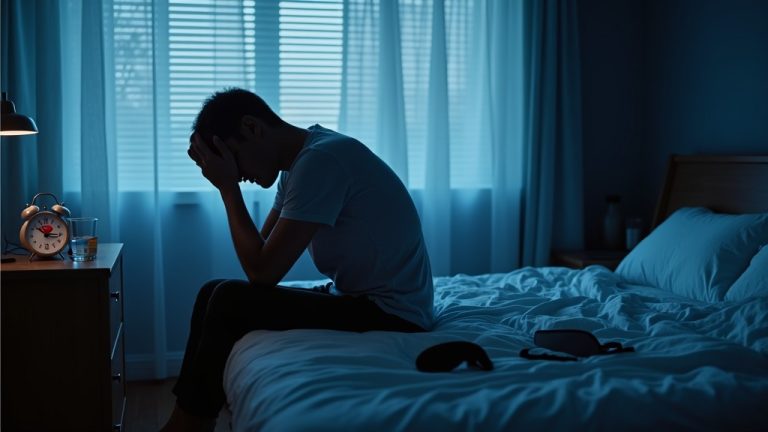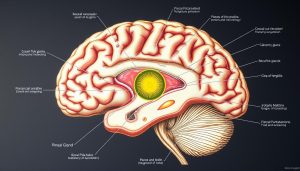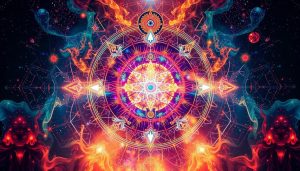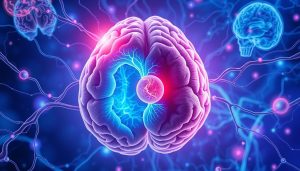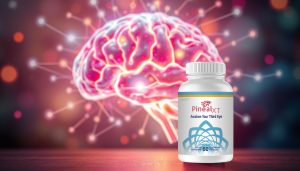Did you know that about 5-10% of adults have pineal cysts? Many don't even know they have them. These small brain formations can cause a range of mysterious symptoms. Knowing the signs of pineal cyst symptoms is key to catching them early.
- Understanding Pineal Cysts: A Comprehensive Overview
- The Challenge of Diagnosing Pineal Cyst Symptoms
- Persistent Headaches and Pressure Sensations
- Visual Disturbances and Their Connection to Pineal Cysts
- Sleep Pattern Disruptions and Melatonin Production
- Memory and Cognitive Function Changes
- Balance Issues and Unexplained Vertigo
- Hormonal Imbalances and Related Symptoms
- Advanced Treatment Options and Natural Solutions
- Monitoring and Managing Your Symptoms
- When to Consider Surgical Intervention
- Conclusion
- FAQ - Frequent Asked Questions
Pineal cysts are fluid-filled sacs in the pineal gland, a small gland in the brain. While most are harmless, some can really disrupt your life. Unlike brain tumors, these cysts can cause health problems that doctors might miss.
Your body sends out subtle signals, and pineal cyst symptoms are no different. They can cause headaches and sleep problems. These signs can affect your life without doctors immediately noticing them.
Key Takeaways
- Pineal cysts affect 5-10% of adults
- Symptoms can mimic other neurological conditions
- Early recognition is key for proper management
- Not all pineal cysts need surgery right away
- Getting a full medical check-up is important
Understanding Pineal Cysts: A Comprehensive Overview
The human brain has amazing structures, and the pineal gland is one of them. It's a small gland in the brain that helps control many body functions. These functions are important for your health.

What is the Pineal Gland and Its Function
The pineal gland is key for making hormones, like melatonin. This hormone helps you sleep and wake up on time. Problems with the pineal gland can lead to sleep issues and hormonal imbalances.
- Produces melatonin hormone
- Regulates sleep patterns
- Influences hormonal functions
- Supports circadian rhythm management
How Pineal Cysts Form and Develop
Pineal cysts are fluid-filled sacs in the pineal gland. They can be different sizes and may cause memory loss and other brain problems. Things like your genes, hormones, and environment can affect their growth.
| Cyst Characteristic | Description |
|---|---|
| Average Size | 2-10 millimeters |
| Formation Triggers | Genetic factors, hormonal shifts |
| Potential Symptoms | Headaches, cognitive changes |
Common vs. Rare Manifestations
Not all pineal cysts are a big deal. Some people don't notice any problems, while others face serious brain issues. Knowing the range of possible symptoms helps you spot and deal with them early.
“Knowledge is the first step in managing your health effectively.” – Neurology Research Institute
Understanding pineal cysts helps you work with doctors to keep your brain healthy.
The Challenge of Diagnosing Pineal Cyst Symptoms

Diagnosing pineal cyst symptoms is a tough task. It often confuses both patients and doctors. The symptoms are so subtle that they can be missed or mistaken for other health issues.
“Pineal cyst symptoms can be like a ghost in the medical world – present but difficult to capture,” says Dr. Elena Rodriguez, neurological research specialist.
Doctors face many challenges when trying to spot pineal cyst symptoms:
- Symptoms often look like other brain problems
- Headaches can be hard to predict
- Vision issues may creep up slowly
- Not many doctors know about them
Figuring out what's wrong usually takes a few steps. People with ongoing headaches or vision troubles should keep a detailed record of their symptoms.
| Diagnostic Challenge | Impact on Patient |
|---|---|
| Symptom Overlap | Delayed proper diagnosis |
| Rare Presentation | Increased medical investigation time |
| Limited Clinical Research | Reduced diagnostic accuracy |
Specialized neurological imaging techniques like MRI are key. They help spot pineal cyst symptoms and tell them apart from other issues.
Persistent Headaches and Pressure Sensations
Pineal cysts can cause headaches that are hard to understand. These headaches can confuse both patients and doctors. It's important to know about these headaches to get the right treatment.

Headaches from pineal cysts are different from usual migraines. This makes it hard to diagnose. These headaches might mean there's something more serious like a brain tumor or hydrocephalus.
Types of Headaches Linked to Pineal Cysts
- Persistent occipital headaches
- Pressure-based pain at the back of the skull
- Intermittent throbbing sensations
- Cluster-like head pain
Distinguishing from Regular Migraines
Pineal cyst headaches are not like regular migraines. They have their own special signs:
| Pineal Cyst Headaches | Regular Migraines |
|---|---|
| Localized posterior skull pain | Generalized head throbbing |
| Consistent pressure sensation | Intermittent pulsating pain |
| Less responsive to standard migraine treatments | Often responsive to typical migraine medications |
When to Seek Medical Attention
See a neurologist right away if you have:
- Persistent headaches lasting more than 72 hours
- Sudden intense pain with no apparent trigger
- Accompanying vision changes or balance issues
- Neurological symptoms like weakness or numbness
“Understanding the nuanced nature of pineal cyst headaches can be the key to early detection and effective treatment.” – Neurological Research Institute
Not all headaches are serious. But, if they might be from a pineal cyst, you need a doctor's check-up. This is to make sure there's no brain tumor or hydrocephalus.
Visual Disturbances and Their Connection to Pineal Cysts
Pineal cysts can cause unexpected vision problems and affect your brain health. These small sacs near the brain can lead to various vision issues.

Vision problems from pineal cysts can be subtle but significant. You might see:
- Blurred vision that comes and goes
- Unexpected light sensitivity
- Occasional double vision
- Sudden visual field disruptions
Pineal cysts can press on important brain areas. This can lead to dizziness and vertigo, along with vision issues.
“Neural proximity means even small cysts can create significant perceptual changes” – Neurology Research Institute
It's important to track your symptoms. Doctors suggest keeping a record of when, how long, and how bad your vision problems are.
| Symptom | Potential Impact | Recommended Action |
|---|---|---|
| Blurred Vision | Reduced visual clarity | Comprehensive eye examination |
| Dizziness | Balance disruption | Neurological consultation |
| Vertigo | Spinning sensation | Vestibular assessment |
Knowing about these vision problems helps you get the right medical help. Don't ignore changes in your vision or strange brain symptoms.
Sleep Pattern Disruptions and Melatonin Production
Pineal cysts can really mess with your sleep. These small growths mess with the pineal gland's melatonin production. Melatonin is key for your sleep-wake cycle.

Sleep issues from pineal cysts can be tough. Your body's natural sleep cycle might get messed up. This can affect how well you function during the day.
Impact on Circadian Rhythm
The link between pineal cysts and sleep problems is complex. Your body's natural rhythm can change a lot. This can lead to:
- Irregular sleep patterns
- Difficulty falling asleep
- Unexpected wakefulness during night hours
- Reduced melatonin production
“Understanding the complex link between pineal cysts and sleep is key for managing them.” – Sleep Research Institute
Managing Sleep Disturbances
To tackle sleep issues from pineal cysts, try these steps:
- See a sleep specialist
- Get hormone tests done
- Try melatonin supplements
- Follow good sleep habits
| Sleep Disruption Type | Potential Impact | Management Strategy |
|---|---|---|
| Melatonin Reduction | Irregular Sleep Cycles | Hormone Replacement Therapy |
| Circadian Rhythm Disruption | Daytime Fatigue | Light Therapy |
| Hormonal Imbalances | Sleep Quality Reduction | Targeted Supplementation |
Spotting and fixing these sleep issues early can lessen their long-term health effects.
Memory and Cognitive Function Changes
Pineal cysts can cause unexpected memory loss and changes in how we think. They can upset the balance in our brains. This leads to small but important changes in how we think and remember.

People with pineal cysts often face special challenges with their memory and thinking. They might find it hard to focus on complex tasks. They might forget things more easily and think slower than before.
- Difficulty concentrating on complex tasks
- Short-term memory lapses
- Reduced mental processing speed
- Increased forgetfulness
“Understanding the neurological impact of pineal cysts is key for managing and treating them.” – Dr. Sarah Richardson, Neurology Specialist
Cognitive changes can show up in different ways, making life harder for those affected. The brain's complex networks might get disrupted. This can make it harder to remember and recall things.
| Cognitive Symptom | Potential Impact |
|---|---|
| Memory Loss | Mild to moderate cognitive impairment |
| Concentration Issues | Reduced work and academic performance |
| Processing Speed | Slower mental reactions and responses |
Spotting these symptoms early can help you find ways to cope. It's also important to talk to a neurologist. They can offer advice tailored to your situation.
Balance Issues and Unexplained Vertigo
Pineal cysts can cause serious problems with balance and vertigo. These issues might seem like minor annoyances but could actually be signs of deeper brain changes.

When pineal cysts mess with your balance, you might notice some odd symptoms. These can make everyday tasks much harder.
Understanding Vestibular Symptoms
Vertigo from pineal cysts is different for everyone. You might feel:
- Sudden spinning sensations
- Unpredictable loss of balance
- Spatial disorientation
- Unexpected dizziness during movement
“The brain's delicate balance mechanisms can be profoundly impacted by even small neurological changes.” – Neurology Research Institute
Coping Strategies for Daily Activities
Dealing with vertigo needs a plan. Here are some tips to help:
- Practice slow, deliberate movements
- Use assistive devices for stability
- Create safe environments with minimal obstacles
- Consult neurological specialists for personalized guidance
Even though dizziness can be scary, knowing what's happening helps. It lets you find ways to keep living well despite the challenges.
Hormonal Imbalances and Related Symptoms

Pineal cyst symptoms can upset your body's hormonal balance. The pineal gland is key in making hormones. A cyst can cause sudden changes in your hormones.
Hormonal imbalances from pineal cysts show up in many ways:
- Irregular menstrual cycles
- Unexpected weight changes
- Mood swings and emotional ups and downs
- Changes in sleep patterns
- Lowered metabolic rate
Understanding these hormonal disruptions is critical for managing your overall health and well-being.
“The pineal gland acts as a master regulator of hormonal processes in the human body.” – Endocrine Research Institute
Pineal cyst symptoms can affect many hormone pathways. This can impact:
| Hormone System | Potential Impact |
|---|---|
| Melatonin Production | Disrupted sleep-wake cycles |
| Cortisol Regulation | Increased stress responses |
| Reproductive Hormones | Menstrual and fertility challenges |
If you're dealing with ongoing hormonal imbalances, see a healthcare expert. They can do tests and create a treatment plan just for you.
Advanced Treatment Options and Natural Solutions
Dealing with pineal cyst symptoms needs a mix of medical help and natural ways. Knowing your options can help tackle tough symptoms like seizures and nausea.

Medical Interventions for Pineal Cyst Management
Your doctor might suggest several medical steps to handle pineal cyst symptoms:
- Neurological monitoring
- Diagnostic imaging follow-ups
- Targeted medication to control seizures
- Hormone regulation therapies
Natural Supplements: Exploring Pineal XT
Natural supplements can add to traditional treatments for pineal cyst symptoms. Pineal XT is seen as a possible supportive supplement.
| Supplement Feature | Potential Benefit |
|---|---|
| Herbal Extracts | Supports neurological health |
| Antioxidant Components | Reduces inflammation |
| Melatonin Regulation | Helps manage sleep disruptions |
“Natural solutions can be powerful allies in managing complex neurological conditions” – Dr. Sarah Reynolds, Neurology Specialist
While natural supplements like Pineal XT show promise, always talk to your doctor before starting them. They can help create a plan that fits you, tackling symptoms like nausea and seizures.
Monitoring and Managing Your Symptoms
Living with pineal cyst symptoms means you need to watch them closely and take action. Your health journey is about understanding your own experiences and finding ways to manage them. This includes tracking and addressing any changes in your condition.
“Knowledge is power when managing complex neurological symptoms” – Neurology Research Institute
Keeping a detailed record of your symptoms is key. This helps you stay on top of any issues that might arise. Make sure to note any changes in your headaches, vision, sleep, or memory.
- Track frequency and intensity of headaches
- Record vision problems and their specific characteristics
- Monitor sleep patterns and circadian rhythm disruptions
- Note cognitive changes or memory inconsistencies
Digital tools can be a big help in managing your symptoms. Think about using apps or digital journals to log your experiences. These can give your doctor a clear picture of how your condition is changing.
Talking openly with your healthcare team is important. Before your appointments, write down any new symptoms or changes. This includes headaches, vision issues, or any other neurological problems.
- Schedule regular neurological check-ups
- Request periodic imaging studies
- Discuss possible treatment changes
Every person's experience with pineal cysts is different. By tracking your symptoms and working closely with your doctor, you can improve your life and treatment outcomes.
When to Consider Surgical Intervention
Pineal cysts might need surgery if they cause serious brain problems. You might reach this point if your symptoms don't go away and affect your life a lot.
Knowing when surgery is needed means watching for certain signs. These include signs of a brain tumor, hydrocephalus, or seizures that keep coming back.
Surgical Options and Success Rates
Choosing a surgery for pineal cysts depends on a few things:
- Cyst size and where it is
- How your brain symptoms are affecting you
- Your overall health
The main surgeries are:
- Microsurgical Resection: This is a precise way to remove the cyst without harming much brain tissue.
- Endoscopic Procedures: This is a less invasive method that helps you recover faster.
- Stereotactic Radiation: This is used for cysts in hard-to-reach places.
Recovery and Post-Surgery Care
After surgery, you'll be watched closely to avoid problems like seizures. What you can expect includes:
- Staying in the hospital for 2-5 days
- Monitoring your brain
- Slowly getting back to your usual activities
“Successful surgical intervention can significantly improve neurological function and reduce long-term risks.” – Neurosurgical Research Foundation
Always talk to a neurosurgeon who knows your case well. They can give advice that fits your specific situation and cyst details.
Conclusion
Knowing about pineal cyst symptoms is key for your health. These cysts are hidden, making diagnosis hard. Being aware of signs like headaches, vision issues, and sleep problems helps you act fast.
Spotting early signs of pineal cysts means you can team up with doctors. They use advanced scans and tests to find and watch these rare conditions. Every person's case is different, so getting a tailored medical check is vital.
Pineal cysts might seem scary, but there's hope thanks to new research and treatments. Keeping up with your health, getting regular check-ups, and learning about symptoms can greatly improve your life. Your effort to understand these complex issues can really help manage any problems.
Early detection and expert advice are your best tools against pineal cysts. Listen to your body and watch for unusual signs. Always talk openly with your doctor to get the best care and feel at ease.
FAQ – Frequent Asked Questions
What are the most common symptoms of a pineal cyst?
Symptoms include headaches, vision problems, and dizziness. You might also have sleep issues, memory problems, and hormonal imbalances. Sometimes, you might feel vertigo.
How do pineal cysts affect sleep patterns?
They can mess with your melatonin, changing your sleep cycle. You might have trouble sleeping, wake up a lot, or feel very sleepy during the day.
Can pineal cysts cause vision problems?
Yes, they can lead to blurred vision, light sensitivity, and double vision. They might also change your visual field.
Are pineal cysts considered dangerous?
Most are not dangerous and don't need treatment right away. But, big cysts or those causing problems might need to be watched or treated.
How are pineal cysts diagnosed?
Doctors use MRI or CT scans to find them. They'll check your symptoms, do a neurological exam, and use imaging to confirm the cyst.
Can pineal cysts cause memory and cognitive issues?
Yes, they can affect your memory and concentration. You might have short-term memory problems. This is because the cyst can interfere with brain function.
What treatment options are available for pineal cysts?
Treatment depends on how bad the symptoms are. Options include waiting, medication, supplements like Pineal XT, or surgery for serious cases.
How do pineal cysts impact hormonal balance?
They can mess with your hormones by affecting melatonin. This can change your sleep, mood, and hormone levels.
When should I seek medical attention for possible pineal cyst symptoms?
See a doctor if you have headaches, vision changes, sleep problems, memory issues, or balance problems. These should not be ignored.
Are pineal cysts hereditary?
There's no clear proof they're passed down through genes. But, some people might be more likely to get them. More research is needed.

